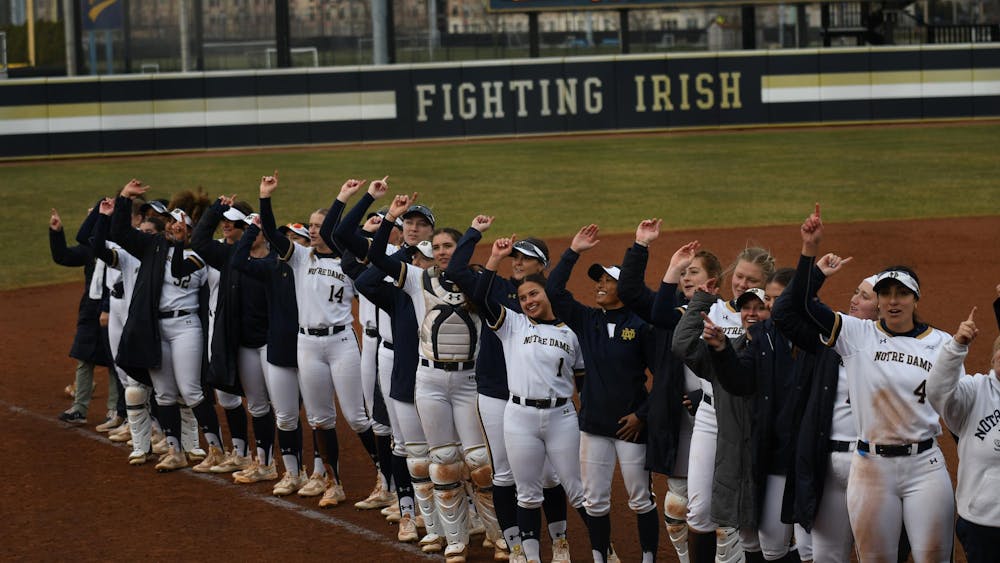Children grow up imagining the great successes they will have in their sporting careers. They knock down game-winning three pointers over invisible defenders as the buzzer sounds in their heads, hit series-clinching home runs off their dads' pitches in the bottom of the ninth inning with two strikes and two outs and evade nonexistent tacklers en route to fantastic touchdowns in their backyards.
But why do they stop there? Why not, say, conquer the world?

Apparently, there is a select group of children who are not satisfied with the trivialities of traditional sports and instead take their athletic ambitions somewhere else: they grow up and compete in the Volvo Ocean Race, a nine-month ordeal that involves perusing the world's oceans.
According to volvooceanrace.com, the race "is an exceptional test of sailing prowess and human endeavour which has been built on the spirit of great seafarers — fearless men who sailed the world's oceans aboard square rigged clipper ships more than a century ago."
While the race's model may be hundreds of years old, its first official installment is much more recent. In 1973 the Whitbread round the World Race came into existence. In the race's inaugural staging, three sailors were lost at sea in the perilous ocean waters. Despite the competition's ominous beginnings, the contest maintained its existence every fourth year. The race adopted its current name in 2001 and has been staged every third year since 2005.
The 2011-2012 installment of the Volvo Ocean Race began Oct. 29 in Alicante, Spain. The first leg of the race took the competitors to Cape Town, Africa, from where they will continue on to Abu Dabhi, UAE, then to Sanya, China, etc. The 39,000 nautical miles-long race makes stops in 10 ports around the world and concludes in Galway, Ireland in July.
To step back and imagine the scenes that will confront the racers, or even to step back and look at a map of their course, is undeniably impressive. To recall the competitors' forerunners is equally impressive, as mere men became masters of the world by abandoning the comfort of dry land and taking to the unknown seas. However, the contest's ties to the past fail to extend beyond a basic desire to emulate the exploratory spirit of early navigators.
As much as retired players or aged broadcasters remark with a hint of superiority about the evolution of sports equipment from when they played to the quality of equipment used by today's athletes, imagine what Magellan might say about today's sailors. While Arnold Palmer can cite the differences in the size of the driver's head or the angle of the wedge in a golf bag and Rod Laver could use a modern titanium racket to make splinters out of his old swatter, early navigators could make the strongest case of all. Today's sailors have traded in the astrolabe for GPS, timber vessels for advanced sailboats and a motley crew for a band of formally-educated sailors. Obviously, the Volvo Ocean Race of 2011-2012 will be a far cry from the danger and uncertainty of historic exploration or trading missions.

Of course, even with all of today's resources, a circumnavigation of the globe is no small feat. Those that partake in the Volvo Ocean Race surrender themselves to the intimidating strength of the ocean, and those that win the contest, or even simply complete in it, can fairly claim to be masters of their craft.
Even while modern sailors find the task of circumnavigation much more easy and comfortable than did sailors in centuries past, the attempts of today's competitors are more impressive in one respect: the lack of necessity. In the age of technology, one could board a plane, pick up a phone, log into the internet or turn on the TV to learn something about distant locations in the world, but these sailors choose to take the adventurous route.
In many ways, the Volvo Ocean Race represents the worst of sport: it is pointless, foolish, unnecessarily dangerous, expensive and impractical. However, the Volvo Ocean Race also represents the best of sport: men and women contributing to a team, seeking a lofty goal, surpassing limits and shirking off the restrictions of fear and convention.
To the children out there who guide their makeshift boats out of the backyard and into the open sea, fair winds.
Contact Joe Monardo at jmonardo@nd.edu
The views expressed in this Sports Authority column are those of the author and not necessarily those of The Observer.












